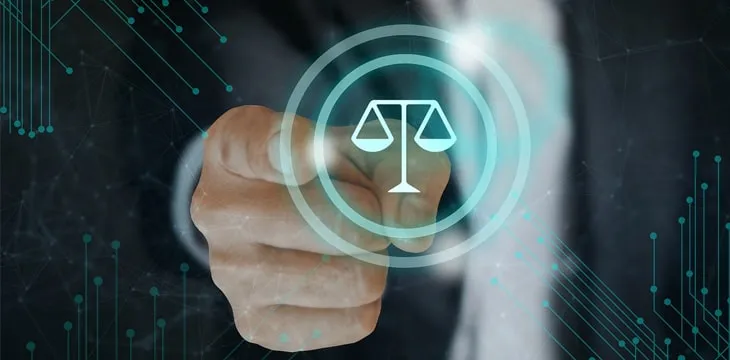|
Getting your Trinity Audio player ready...
|
The Binance digital currency exchange is facing fresh legal problems. Steven Reynolds, who describes himself as a former service provider to the company, has filed a lawsuit in California, alleging the exchange illegally seized his funds. He wants to get his money back, reportedly worth almost $300,000, and hopes a court will see things his way.
Reynolds reportedly worked for Binance for about six months in 2017. According to the lawsuit, which was filed in the United States District Court for the Northern District of California, San Francisco, he was reportedly contracted to provide services “to support Binance’s online communications with English speaking customers.”
His contract finalized in December of that year, when he received Binance Coin (BNB) tokens as payment. He then continued to use the Binance exchange “to buy and sell cryptocurrencies and continued to store digital currencies in his Binance account.”
In January of the following year, Reynolds was contacted by someone at Binance over a Telegram channel he was running. He was requested to remove the group chat, an option that wasn’t available. A Binance representative then asked him to remove any reference to the company, as well as change its name, which Reynolds assets he did.
However, that didn’t bring the issue to a close. The lawsuit explains that “Reynolds was contacted by Binance’s CEO, Changpeng Zhao, who demanded that Reynolds delete the chat or remove all of the participants. Reynolds initially resisted but was immediately threatened by Zhao with legal and financial damages unless he complied. Then, within minutes, Binance carried out Zhao’s threats. Without Reynolds’ consent, Binance unilaterally lowered Reynolds’ withdrawal limit in his account to zero. Reynolds’ account was effectively frozen, as he was restricted from withdrawing any of his assets.”
It added, “Binance then locked Reynolds out of his account entirely. He could not log in using his username and password. Reynolds attempted to restore his account through Binance customer service, but his access was restricted. Reynolds could no longer access his account, and he could not access his digital currency assets stored thereon. At the time, Reynolds’ Binance account was holding approximately $285,000 worth of digital currencies. Months later, on or about March 31, 2018, Reynolds was able to regain access to his Binance account. However, his account balance was zero.”
Reynolds caught up with Zhao a few months later at the TechCrunch conference in Switzerland, where he asked him to return his money. Zhao reportedly refused the request, leading to the lawsuit. Reynolds wants the amount that was held in his account when Binance froze it, as well as another $52,500. The total amount of $337,500 is what Reynolds claims he would have been able to receive if he had cashed out his digital currency holdings after Binance shut him out. He also wants additional compensation for damages and legal fees.
Binance has its own take on the situation, asserting that the Twitter channel was company property that Reynolds was expected to turn over when his contract expired. A representative for Binance told The Block, “[Reynolds] refused and told us, ‘I don’t care.’ He insisted on keeping the 9000+ users who joined the Binance Support Group for his personal and future use, and did not inform users of why the group name had changed or what its new purpose was. Steve then kicked out the Binance moderators from the misappropriated chat group, nullifying our efforts to warn and protect the users left in the group.”
Reynolds wants a jury trial, which may or may not be a smart move. The issue will come down to who can provide the most support for the case, and who has the deeper pockets to mount a defense.

 07-05-2025
07-05-2025 





